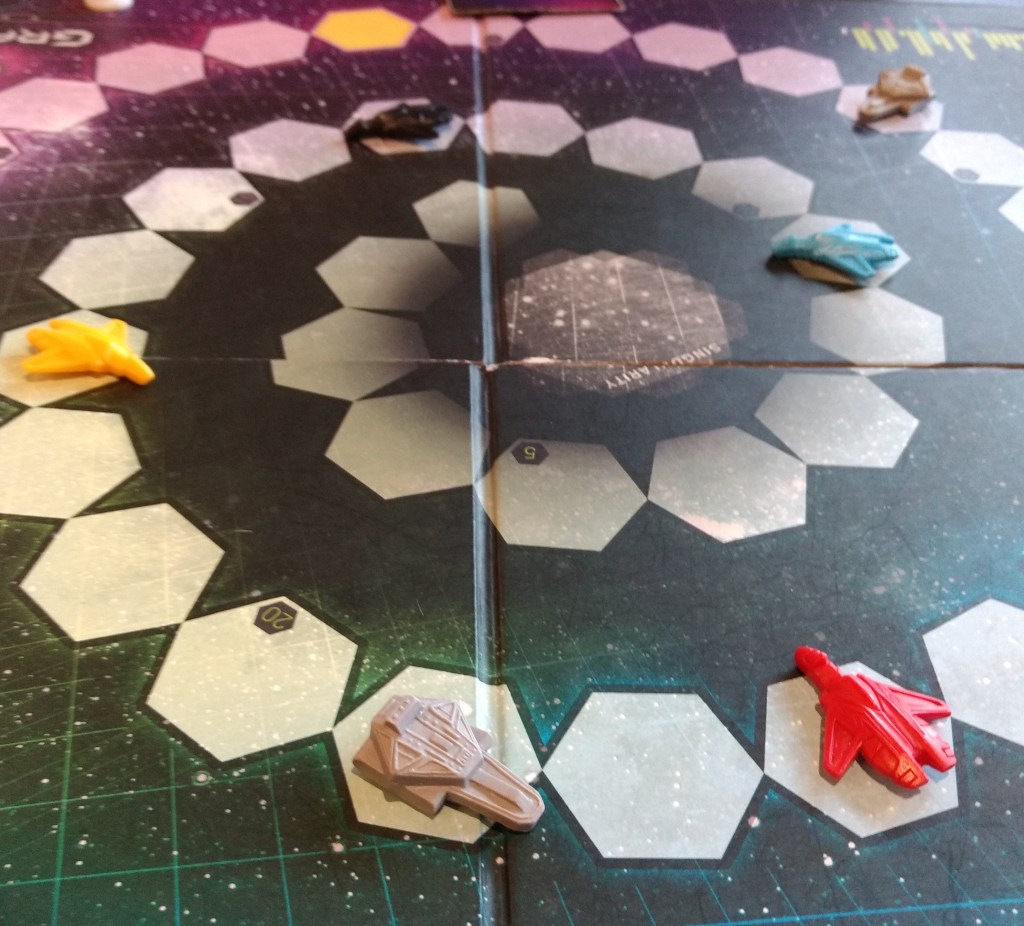I don’t have as many space games as you might expect for an astronomer, but I do have a few. They range from the relatively small Space Park to the big, point-salad-y Pulsar 2849. The ones on my shelf, though, are only a small subset of the space games out there – on Board Game Geek there are over a thousand games tagged as “Space Exploration” and many thousand listed as “Science Fiction” (with some overlap, of course).

Space is used as a theme in a wide variety of games across the entire spectrum of mechanics, length, weight, and player-count. But why is it such a compelling theme for games?
One obvious reason is that space is beautiful. By setting a game in space, there is ample opportunity to create art based on the sweeping images of nebula, stars, and galaxies that can be seen gracing the NASA social media streams. Even I get drawn in by the incredible space art in some games – I picked up Space Park because of the gorgeous travel posters that imagine what national parks would look like in space.

Space as a theme also allows game designers to capture people’s imaginations of what it might be like to be “out there.” From the relatively serene planet-building game of Planetarium to the nightmarish relentless attacks of the aliens in The Captain is Dead, space lends itself to range of game types and themes. The only limit is the designer’s imagination.

Space can also allow games to do things that can’t be done with other themes–or that are at least harder to achieve. Gravwell is a relatively simple racing game; however, it imagines that the racing ships are essentially in a field of neutral gravity so that when a player moves, their ship must always move toward the nearest ship, whether that helps them or not. (This ignores the fact that the gravity of the imagined black hole at the center of the board would actually trump that of any of the ships in the area–but I’ll forgive them that.) While this mechanic could be achieved in another setting, it is perfectly natural in the middle of space.

But maybe the biggest reason to use space as a theme is because so many people love space. Sure, not everyone loves space, but the public outcry over the cancellation of the Hubble Space Telescope in the early 2000s caused Congress to reverse its decision and schedule a final servicing mission by the late 2000s. All because Hubble and its incredible images are seen as a national treasure. All because people love space. This is a ready-audience for space-themed games….at least those who like games, too.
I participated in a panel discussion at PAX Unplugged about space themed games and their potential educational value. This is the first in a (sporadic) series of posts where I explore this topic based on what we discussed in that panel.

One Reply to “Space as a theme in games”